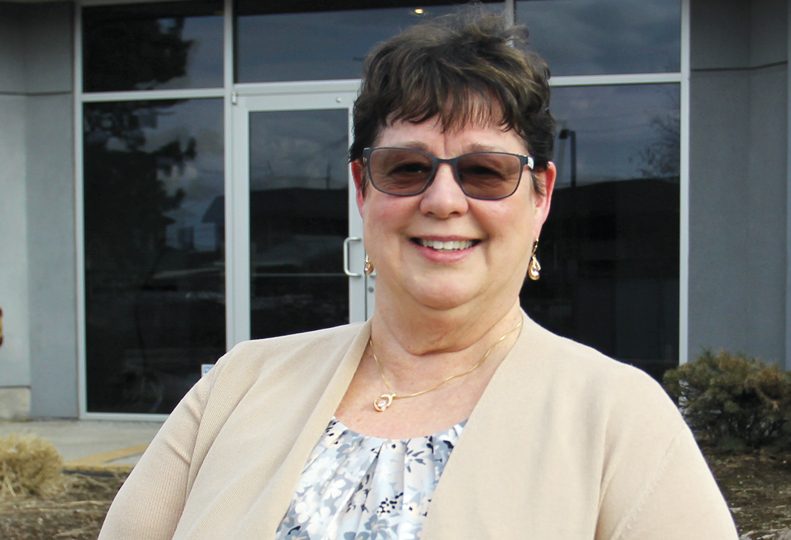
Home » Parting Thoughts with Spokane Media Federal Credit Union's Debie Keesee
Parting Thoughts with Spokane Media Federal Credit Union's Debie Keesee
~

April 13, 2023
After 26 years as the CEO of Spokane Media Federal Credit Union, Debie Keesee will step down from her post, effective Friday, April 14.
Keesee launched her career in the credit union industry in 1978 when she was 19 years old. She attended Eastern Washington University and is a graduate of Claremont College’s Credit Union National Association Management School, in Pomona, California. Keesee’s family settled in Spokane when she was 9 years old after living in England, Florida, Massachusetts, and Puerto Rico.
Spokane Media Federal Credit Union has $17 million in total assets and serves 1,100 members. Founded in 1938 by employees of the Inland Empire Paper Co. mill, the credit union has since expanded its membership to include radio, television, and newspaper employees.
The Journal recently sat down with Keesee to discuss her career in credit unions, her advocacy work at the state capitol, and her retirement plans.
What drew you to work in credit unions?
I got a car loan at a credit union when I was 19 years old. My father had opened an account for me at Fairchild Federal Credit Union, now Global Credit Union, when I was a kid. I looked around and said, ‘I don’t know what I want to do, but I think I want to work at a credit union.’ It looked like a great place to work. Part of it was the way they treated us.
Once I started working at a credit union and saw all the things we do, and all the things we do for our members, and all the connections we make, and people we help, I loved it. That is the kind of stuff that can fill up your cup. It’s rewarding, and you can say you did good work today and then go home.
It turns out my grandfather on my mother’s side started a credit union in Florida back in the 1940s. I didn’t know that connection until after I went to work. During the Depression, there were a lot of credit unions, because people couldn’t borrow money from anywhere, or get loans. Credit unions became something where they could help the common man. My grandpa was a principal in West Palm Beach, Florida, and helped start a school credit union. He had a shoebox in his office where people went to deposit money into their accounts.
What are some accomplishments you are most proud of?
I’m very proud of the Women’s Leadership Alliance that I helped establish. I’ve also served on national boards and state boards. I helped create a credit union service organization that does data processing for credit union clients in 10 states. Our credit union was one of the first to start that CUSO. I also worked to increase the National Credit Union Administration definition of small credit unions.
During my career, I’ve noticed how important advocacy is. Politically, I’ve visited with state legislatures, and legislative bodies at the national level to advocate on behalf of all credit unions, because … you have to fight to have a good environment. Our state has one of the best credit union charters for doing business. I’ve really enjoyed that, and think I’ve made a difference in some of the stuff I did.
How did you help change the definition of small credit unions?
I was chairman of a small committee for the Credit Union National Association. We had meetings regularly with the board of NCUA, and one of the things we worked on was to move the definition of what is considered a small credit union from a regulatory standpoint to a larger amount, which stands at $100 million in total assets. If you are under $100 million, you still have regulation, but it won’t be as tough or restrictive. My liquidity policy would be a 10-page policy as opposed to (a larger credit union) defined as over $100 million, which would have more steps. It allows us to have some regulatory freedom. We still have to follow the rules, but the rules recognize the (lower) risk we have to the fund as a smaller institution.
What have been the big challenges in your career?
I think one of the biggest obstacles is that I lead a small credit union, and having someone respect the fact that I know as much about our industry as someone who is from a $10 billion institution is challenging at times. I am a pretty strong female, so I’ve never had issues with gender, but by the same token, I’ve had people not respect me because my institution is small.
What are your plans for retirement?
I’m looking forward to spending more time with my husband and grandkids. I think I will take the relationships that I’ve built being a credit union advocate and use those same relationships to be an advocate for amyotrophic lateral sclerosis—Lou Gehrig’s disease. Whatever I can do to help the folks who are battling with that diagnosis.
Cathy McMorris Rodgers asked me what my plans were. I told her I’ll be back, but with a different hat.
This interview has been edited for length and clarity.
Latest News Banking & Finance Q&A Profiles
Related Articles
Related Products




